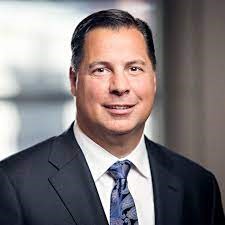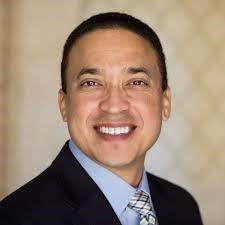
February 15, 2023
In 1921, John Wesley Cromwell broke through a racial barrier to become the first Black certified public accountant. More than a century later, that pioneering CPA might be disappointed to learn that the industry has made little progress in diversity. The AICPA 2021 Trends report presented that only 2% of CPAs at US accounting firms are Black, supporting a conclusion that the accounting profession remains overwhelmingly white.
The AICPA’s finding—coupled with the fact that only 5% of the firms’ CPAs were Hispanic and Latino and 14% were Asian or Pacific Islander—highlights the need for a concerted effort to help make the profession more racially and ethnically diverse.
Additionally, despite tremendous gains in gender diversity, women remain underrepresented at the top levels of our profession. However, their representation and influence has increased dramatically in recent years, with the AICPA 2021 Trends report finding that women comprised about 46% of CPAs at US accounting firms.
Our challenge is to build on the gains for women while applying the same rigor and intensity that improved gender balance to advance ethnic and racial balance.
While diversity and inclusion efforts have improved in the profession, these efforts haven’t created substantial change. Many of the barriers that historically blocked underrepresented identities from becoming CPAs are gone, but other challenges continue to disproportionately impact Black and Hispanic or Latino professionals. Dismantling the remaining roadblocks requires a comprehensive effort and new ways of thinking.
Call to Action
As one of the world’s largest professional services firms, we believe Deloitte has a responsibility to help drive change in our profession. We have offered some actions that leaders can take to create more equitable organizations as part of a comprehensive call to action, the Equity Imperative.
We don’t claim to have all the answers, but here are six fundamental actions that we believe can help drive meaningful change and improve the diversity of the accounting profession:
Cast a Wide Net
A broad and far-reaching demand exists for professionals with tax and accounting skills. That demand is driven by increasing complexity of tax and accounting rules, sophistication of tax and regulatory authorities, and proliferation of data and advanced technologies used to address these changes. Accounting is the language of business and, as such, is the foundational component of professional success.
Decades of poor image management have caused the study of accounting to be portrayed as a confined professional destination rather than a path to a wide array of financial and business leadership opportunities. The tax professional and accountant of tomorrow is a broad business adviser with knowledge that crosses operations, finance, and strategy development. To address this far-reaching demand, increasing awareness of and interest in the profession is one important step in helping to increase the supply of accountants. This is particularly true for Black and Hispanic or Latino individuals who may have lacked the visible role models that naturally attract one to a field of study.
This shortage of role models is born directly out of Cromwell’s experiences, as well of those of the generations that followed. We are faced with a unique opportunity to fill the burgeoning demand for tax and accounting professionals with a diverse group of entrants who are uniquely positioned to lead the profession into the next generation.
Clear the Field
We need to work collaboratively to challenge every element of the professional model to understand and mitigate the obstacles, barriers, and blind corners that may impede the increased diversity of professionals in the tax and accounting fields. In addition to institutions that we have a longstanding history of collaborating with to attract talent, we are expanding our support to prioritize educational institutions that attract racially and ethnically diverse accounting students to support their programs, access to apprenticeship opportunities, financial support, and mentorship opportunities.
One of the core elements of our efforts is a $75 million commitment to our MADE strategy—Making Accounting Diverse and Equitable—a comprehensive effort to increase racial and ethnic diversity in accounting. The Deloitte Foundation Accounting Scholars program is included in Deloitte’s $75 million commitment. Over the next several years, the Deloitte Foundation expects to fund $30 million in scholarships for students, including students pursuing a fifth-year master’s program in accounting from an accredited college or university program in the US, in an effort to increase representation of racially and ethnically diverse students in these programs.
Support CPA Passage
We must seek to challenge entrenched assumptions and orthodoxies that can create easy-to-overlook barriers for aspiring accountants. This process starts with gaining a better understanding of the challenges by listening to the people who are forced to confront them.
One of those challenges is the longstanding requirement for 150 hours of college credit to become a CPA, which can be an insurmountable financial hurdle. A more flexible approach is needed that allows for alternative paths, work study, and increased support for CPA passage. While we recognize state accountancy laws and rules would need to be updated, we believe now is the time to work together to support alternative pathways to CPA licensure.
Accounting firms need to better support and empower professionals pursuing a CPA license by providing resources that are essential to accelerating CPA success, including exam strategies and guidebooks, study plans, well-being support, and inspirational stories from fellow CPAs.
Advancement to Leadership
Diverse representation at the leadership levels is not only critical to making progress against DEI goals, but it also allows organizations to bring diversity of thought to clients, talent markets, and communities. We must continue our efforts to elevate the experiences of underrepresented professionals as we strive for transformational change in overall representation and in leadership roles.
It is imperative to provide more resources for mid-career accounting professionals to advance into leadership positions. We should empower professionals to own their careers and seek out opportunities most meaningful to them. They should be free to embrace their race, ethnicity, culture, nationality, sexual orientation, gender, uniformed services experience, disabilities, and other perspectives by self-identifying and sharing their experiences. A strong network can be key in gaining access to assignments, leadership visibility, and experience needed for advancement.
A great example of how our profession can work collectively to increase diversity is the Climb Fellowship, a Deloitte collaboration with Carnegie Mellon University’s Tepper School of Business that brings together Black and Hispanic or Latino mid-career accounting professionals from Deloitte and other firms to provide resources that help position them for senior roles within their organizations.
Strategic Collaboration
Creating sustainable change and driving social and economic prosperity requires coordination across a broad ecosystem of organizations, corporate businesses, not-for-profits, regulatory agencies, and educational institutions to work collaboratively to diversify the accounting profession. This involves driving workforce initiatives and creating opportunities to engage, support, and invest in diverse talent.
We have formed relationships with several organizations that share our vision for a more diverse accounting profession, including the Association of Latino Professionals for America, the National Association of Black Accountants, Management Leadership for Tomorrow, and Ascend—all preeminent organizations for business affiliation in the cohorts they serve. Joining forces with organizations like these can increase the impact and accelerate the pace of change.
Foster Accountability
Our profession must be honest and transparent about where we are today and must set clear goals for where we want to be tomorrow. Setting and pursuing these goals requires a comprehensive understanding of our current state. Having a clear sense of what we are doing well and where we need to improve will better equip us to identify and address the needs of professionals and communities. It is important for our profession to set the standard for equity and belonging for individuals that will help ensure everyone is empowered to thrive as their exceptional selves and reach their full potential.
Our 2022 DEI Transparency report, released in July, shows varying degrees of progress across multiple identities. But we know we have much more to do. We aren’t naive enough to think we can transform our profession—or even our own organization—overnight. Bringing DEI to our profession in a meaningful way will take time and considerable effort by all major firms. But we are confident that change can happen.
The time is now to increase diversity, equity, and inclusion in the accounting profession. By working together, we’ll be better positioned to advance these important goals at both an organizational and a societal level.
Author Information
 |
Steve Kimble is the Chairman and Chief Executive Officer of Deloitte Tax LLP, with leadership responsibility for more than 14,000 tax professionals. He is also a member of the US executive committee and the US management committee and serves as an active advisory partner for several of Deloitte’s largest multinational clients. |
 |
Stephen Metoyer is Chief Diversity, Equity, and Inclusion Officer for Deloitte Tax LLP. He plans and implements diversity initiatives, activities, and training programs across Deloitte Tax and works closely with firm leadership to further a more equitable and inclusive workplace for all professionals. |
This article originally appeared in Bloomberg Tax on December 15, 2022. It does not necessarily reflect the opinion of Bloomberg Industry Group, Inc., the publisher of Bloomberg Law and Bloomberg Tax, or its owners.
The Ignite blog is an official publication of the Kansas Society of CPAs, Copyright 2023.
THANK YOU TO OUR SPONSORS & PARTNERS IN ACCOUNTING EXCELLENCE!
 |
 |
Would you like to showcase your business by sponsoring the Ignite blog? Click here for more information.
© Copyright 2025 KSCPA | All Rights Reserved